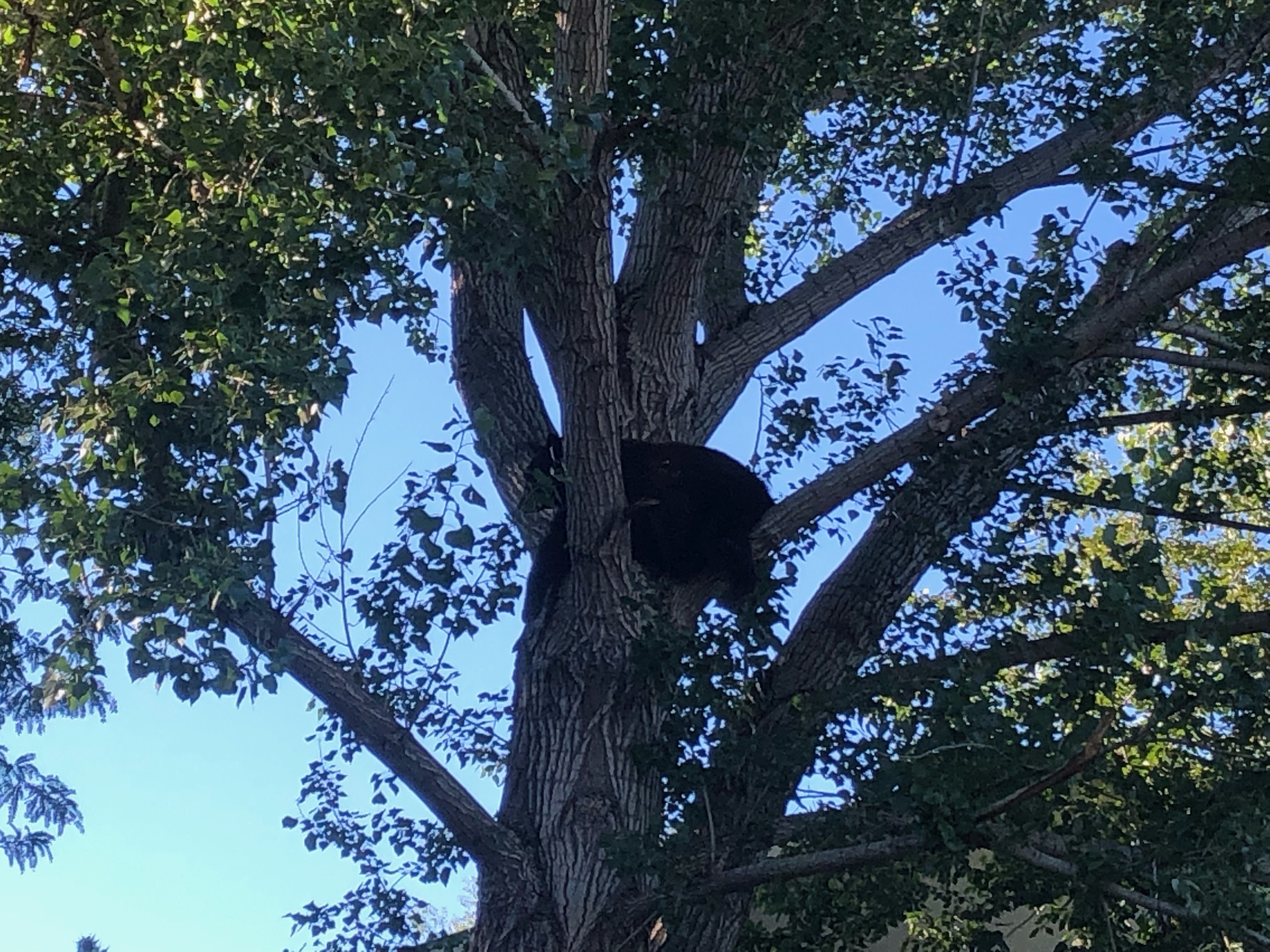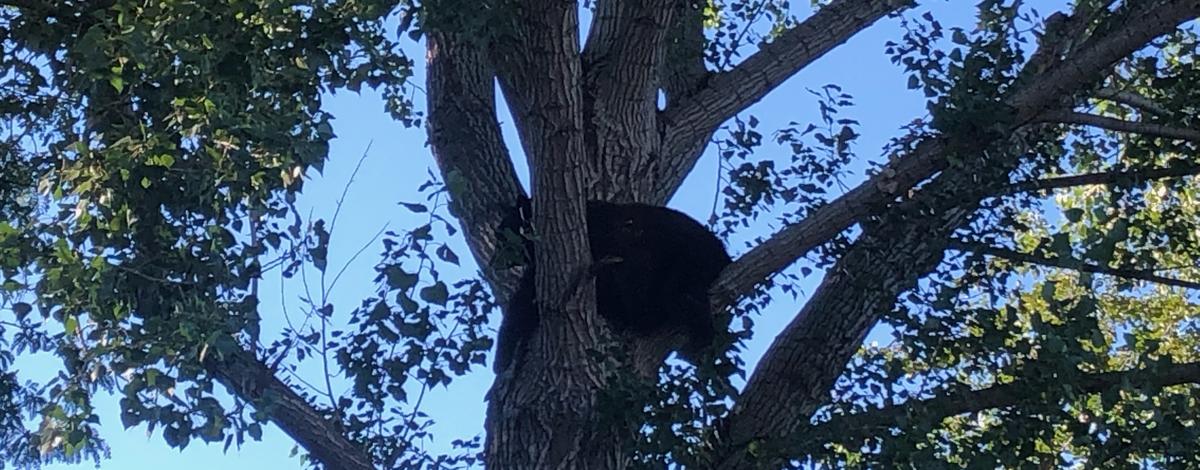On the morning of September 24, Idaho Department of Fish and Game officers dispatched an adult male black bear in a north Boise neighborhood, close to the foothills and near the junction of Hill Road and Lancaster Drive. Fish and Game dispatched the bear due to concerns for public safety.
Fish and Game's Southwest Regional Office received numerous reports of a black bear wandering the area on Friday morning, and conservation officers and biologists located the bear in a cottonwood tree in the back yard of a Hillway Drive residence.

Fish and Game officials attempted to chemically immobilize the bear. Before the immobilization drug could fully take effect, the bear fell out of the tree and ran downhill toward Hill Road. Officers from Fish and Game and the Boise Police Department dispatched the bear before it could move further into more densely populated residential areas.
This is the second incident involving a bear in Boise in the past week that has resulted in the bear being euthanized. On Sept. 18, Fish and Game officers euthanized a black bear in a southeast Boise industrial park compound between South Federal Way and I-84. The black bear was a subadult male that had been captured and moved from a north-end Boise residential neighborhood 4 months earlier.
"Given that we have had such a dry year, natural food sources in the mountain and foothills are likely limited," said Ryan Walrath, Southwest Region Wildlife Manager. "In years like this, bears are searching for other food sources to help them put on weight prior to hibernation in the winter."
Conflicts happen when bears score an easy meal in town
Heading into the winter, black bears can pack on as much as 30 pounds per week and add about 4-5 inches of body fat prior to denning. To do that, they need to consume around 20,000 calories per day, so bears are continually on the hunt for food that’s high in protein and fat. Sometimes, that brings them to unlikely places -- particularly in dry years like this one, when natural food sources are limited.
In urban areas like Boise, food for black bears is largely limited to human-related sources such as pet food, bird feeders, and fruit trees in backyards, and of course, garbage cans and dumpsters.
When bears find their way into town and find those food sources readily available, it often leads to a bear that is food-conditioned and habituated to humans, which creates a significant public safety concern, particularly in a heavily-populated city like Boise.
Here is how area residents can avoid attracting black bears
Luckily, there are a lot of steps humans can take to avoid attracting bears to their neighborhoods. These tips are geared toward people living on or near an urban/wildlife interface (such as homes near the Boise Foothills), where black bears are most likely to show up first.
- Remove bird feeders between April and mid-November
- Feed pets inside
- Don't place trash cans out overnight. Put them out the morning of your trash pickup.
- Do not keep coolers, refrigerators, or freezers outside
- If a bear has already visited your place and found food, take the above steps right away. The bear will likely pay you a couple more visits, but if it finds no food, it will eventually move on
- Residents should report bear problems to their local Fish and Game office in a timely manner

